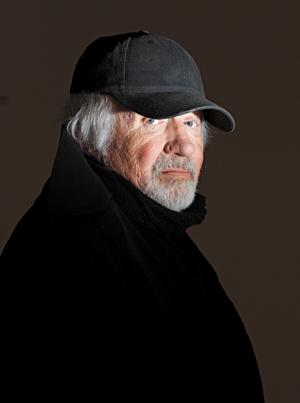Beauty, and Dave Hickey, reconsidered
In The Invisible Dragon, Dave Hickey argues for the unruly vitality of the human imagination against forces of control—economic, political, and academic. It’s a book that wants art to be made in a state of absolute individual freedom, where forms and ideas contend for survival in an imaginative free market governed by nothing but desire: the desire to make art and the desire to see or own it. It’s an energizing book. Though it’s a bit of an invitation to anarchy—creative anarchy—ironically, it’s an argument for deference and courtesy. He elevates beauty into a core principle, which hardly sounds scandalous, though it was greeted that way. For him the struggle to make something beautiful forces an artist to cede power to the viewer—the artist has to beguile, not lecture. That’s a shift in power that few people around him wanted to see. He asserts a painter needs to make the viewer want to look, rather than rely on institutions that compel people to look and think a certain way, based on certain forms of approved expression. Better to make a beautiful object without significance than to create an admirable bit of agitprop that repels or bores everyone who sees it, as it offers a dose of permissible opinions about life.
Yet rereading this book again, one can see how Hickey never thought to follow his impulsive invocation of beauty (in response to a question at a professional conference) with a journey to its Platonic extreme and see beauty as the mysterious goal itself. He doesn’t pause to attempt the impossible that every real philosopher has: what is beauty, in and of itself? The question is unanswerable, but craving an answer to it is an essential way to be awake to life. It’s a question a bit like Heidegger’s question of Being: “why is there something rather than nothing.” The first time I read his book, this avoidance on Hickey’s part didn’t really occur to me, this shunning of questions about the nature of beauty. It’s easy to miss how he degrades beauty, in a sense, as something almost equivalent to advertising. His point here was to fight back against external controls over creativity, and he succeeds, with supple, showboating eloquence.
He’s a relativist, a pragmatist, a postmodern theorist himself pushing back against how postmodern theory has been debased with political agendas. He argues that beauty is the most effective Trojan horse for smuggling ideas into the heads of others. If you’re a progressive who wants to see social change, then you need a David to paint something as visually thrilling as the Oath of the Horatii and secondarily deliver some politics, on the side, while he has you transfixed. Beauty is the gift wrap for provisional, historically useful ideas—yet the real gift for Hickey turns out to be the wrapping—and this is where he has to cede that beauty matters more than any significance you can consciously invest in it—because most ideas have an expiration date, while great beauty endures. MORE
